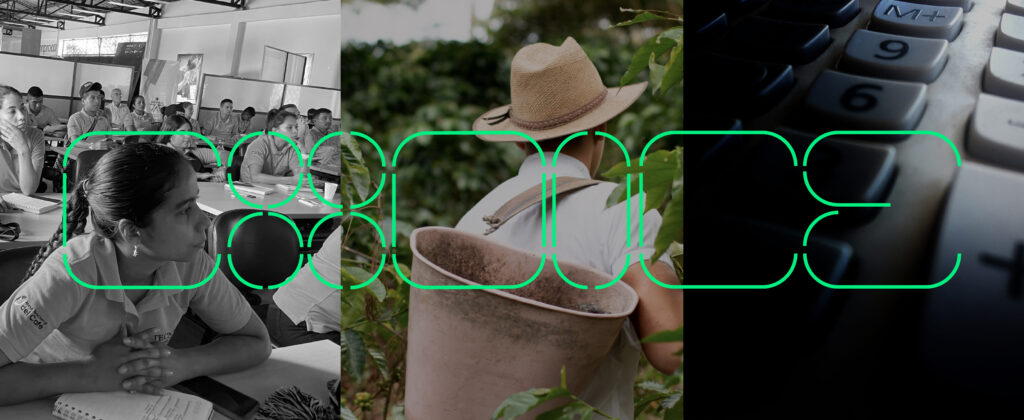
Our commitment to solution
Uniting Disciplines for Climate Stabilitisation
The CHOICE project stands out with its unique approach, blending a diverse range of disciplines, immersive tools and methods, to improve how we integrate behavioural change and food system actors' heterogeneity aspects into Integrated Assessment Models (IAMs). Our focus is on making these advanced scientific tools more accessible to broader society segments, and incorporated into citizens’ daily practices and decision-making processes to accelerate climate action. To achieve this, the most impactful demand-side measures around food consumption, production, and supply chain sustainability will be considered, with social and behavioural factors inherently taken into account through methods successfully adopted in the behavioural science and marketing domains. The Randomised Controlled Trials and A/B testing methodology, supported by targeted communication and engagement campaigns, will permit CHOICE to explicitly assess the readiness of citizens, communities and industrial actors of a given socio-economic profile to adopt such measures and embed this knowledge in well-established IAMs. Barriers and enablers for this adoption will be qualitatively and quantitatively assessed during the European and international CHOICE pilot demonstrations.
Towards next Generation of IAMs
IAMs and Behavioural Models in CHOICE
Modelling and driving behavioural change in CHOICE
- Organize large-scale engagement campaigns to motivate behavioural change of actors and communities at the pilot level by adopting CHOICE mitigation actions (adoption of plant-based diets, reduction of food waste, regenerative agriculture practices) and assess the system’s resilience in response to these changes.
- Employ Randomised Controlled Trials for evidence-based optimization of campaign design, interventions, and messaging to ensure their effectiveness.
- Calibrate campaign outcomes on food habits at a micro-level and upscale to global impact, integrating behavioural changes into IAMs and addressing economic factors for equitable solutions.
Improving behavioural change and actor heterogeneity representation in IAMs
- Creation of future scenarios for alternative diets using behavioral change models and RCTs, focusing on diverse societal responses based on income, education, and urban-rural settings, for analysis in IAMs.
- Improve IAMs by incorporating detailed agri-food commodity, nutrient flows, and value chain representations into GLOBIOM, including food waste and loss data, and nutritional mapping of food products using the GENuS database.
- A new health module will be integrated to evaluate the health impacts of different diets across societal groups, using nutritional and mortality indicators.
Improving transparency, scenario representation and stakeholders engagement in IAMs
- CHOICE is creating a novel interactive modeling framework using FELIX, a simple IAM, coupled with the GLOBIOM model, to facilitate stakeholder engagement in IAM scenario development, enhancing transparency and diverse scenario representation.
- This framework will allow interactive exploration of climate and sustainability impacts in the food and land use sectors, enabling stakeholders to directly engage with and understand the consequences of demand-side mitigation options.
- Engaging workshops and a user-friendly web interface will allow in-depth assessments of social, environmental, and economic factors, alongside simulation of diverse food system scenarios for visual impact analysis.

Exploring tradeoffs and co-benefits with biodiversity, water, health and SDGs.
- Implement cutting-edge food and health indicators in IAMs for nuanced climate change mitigation assessments, focusing on diverse demand-supply dynamics and socio-economic factors to enhance understanding of nutrition, health, and well-being impacts.
- Utilize GLOBIOM to trace the environmental footprint of food production from commodities to nutritional value, analyzing biodiversity and water impacts at various scales.
- Develop and assess food system pathways and policy scenarios for climate change mitigation effectiveness and SDG alignment, leveraging GLOBIOM and FeliX for in-depth environmental, economic, and societal insights.
Downscaling IAM results to make mitigation impacts more relevant and of familiar scale to policy and decision makers
- Evaluating both the positive outcomes (eg. improved public health, job creation) and potential negative impacts (eg. increased costs) of climate policies. This dual assessment helps in designing strategies that maximize environmental and social benefits, while minimizing any adverse effects.
- Collaboration with the FABLE Consortium, assisting researchers in 20 countries to develop long-term, globally consistent plans. This effort enhances the relevance of climate models and fosters effective stakeholder engagement at the national level.
- Climate models refinement via pilot demonstrations, incorporating diverse consumer behaviors and feedback. Tools like the FABLE Calculator will be used to assess climate actions’ impact on broader goals like the UN Sustainable Development Goals, aiding policy development.
CHOICE Immersive Enablers
CHOICE harnesses the power of digital immersive tools, data storytelling, and captivating online gaming to drive widespread engagement and facilitate "green marketing" campaigns. Our reach extends across diverse geographical and societal landscapes, with a consistent focus on informing global IAM models, particularly in the European context. These immersive enablers are instrumental in amplifying our mission for climate action within the food chain. They empower individuals to make informed choices and support the adoption of mitigation measures at local, community, and industrial levels.


